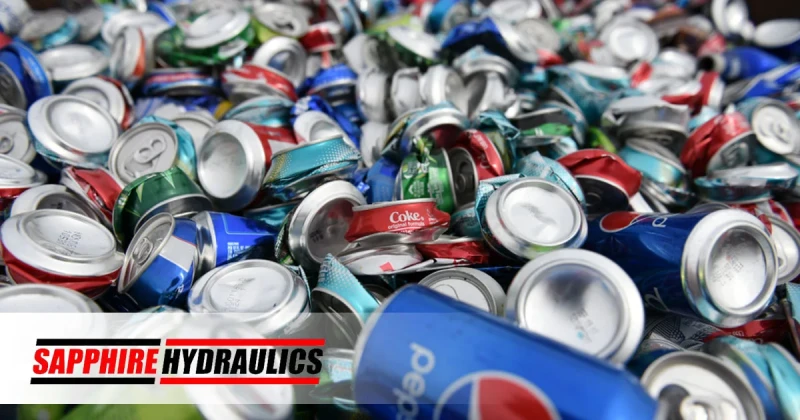 24 hour on-site hydraulic repair, replacement, hose & fitting services.
24 hour on-site hydraulic repair, replacement, hose & fitting services.

While the recycling facility processes materials strictly from businesses — and not the household items many of us put on the curb once a week — its operation illustrates the intricate process of parsing reusable materials from trash.
Fernando Cedillo of Republic Services gives Houston Matters producer Michael Hagerty a tour of the facility and shows him how all the materials get separated. And Cedillo tells him about some crazy things he’s seen people try to recycle.
Video: A Closeup Look At How Houston’s Recycling Gets Sorted
Original Article: Houston Matters Producer Michael Hagerty Tours the Houston Resource Renewal Center
HRRC is a Republic Services company located in northeast Houston and is responsible for processing approximately 95 tons of materials each and every day. The organization uses a combination of manpower and machine-power to sort, organize, and package recyclable materials to be used in their next chapter of life. As you may have guessed, there are a number of power, hydraulic-powered pieces of equipment that are used to keep the plant running smoothly. In fact, Hydraulics & Pneumatics has a great article written by Alan Hitchcox in the late 1990s that details the custom hydraulic equipment design and operations of several waste management and recycling industry machines.

Hydraulic technology rises to the occasion by offering drive components that are much less bulky and more well suited to the demands of high-torque shredding. For example, one company's twin-roll tire shredders are driven directly by a pair of radial-piston motors through a hydraulic system provided by Hagglunds Drives Inc., a division of Bosch Rexroth...Each motor has a displacement of 1084 in.3/rev and can generate up to 66,840 lb-ft of torque. The motors are rated 14,390 lb-ft/1000 psi, and can handle 5000 psi, so their maximum torque rating is actually 71,390 lb-ft. Severe jam ups that could damage gear drives simply cause these motors to stall. Stall conditions increase pressure in the hydraulic system, which triggers valves to automatically reverse rotation of the drive to free the jam up.
The heart of the clarifier is the drive. Conventional clarifier drives consist of an electric motor turning the rotating rake through a belt or chain drive and gearing to reduce speed and increase torque. Drives built by DBS Mfg. Inc., Forest Park, Ga., however, use gearing in combination with hydraulics to transmit power. Andrew Bain, director of engineering at DBS, explained that hydraulic drives are more reliable, last longer, and require less maintenance than chain or belt drives. "Especially when greater loads and precise torque control is required, hydraulics is the best engineering solution. Our drive units are designed to operate 24 hours a day for maany years, and it's not uncommon for them to last 30 years or more." As with many hydraulic systems, DBS drives have the pump mounted submerged in the reservoir. However, Bain said DBS takes this concept a step further by submerging essentially all of the hydraulic components in the reservoir: valves, tubing, hydraulic fittings — even the low-speed, high-torque motor. "Submerging everything in the reservoir eliminates leakage problems almost completely," reveals Bain. "If the fitting connecting the pump outlet line to the valve inlet port leaks, the fluid leaks harmlessly within the reservoir."
Hydraulic motors for most applications have a stationary housing with a rotating shaft. Sometimes, however, an application is best served by a motor with a stationary shaft and rotating housing. Such is the case with the cutter drive on wood waste grinders manufactured by Packer Industries Inc., Mableton, Ga. Another advantage of Packer's wood waste grinder is an ergonomically designed cab. Hydraulic functions and components are controlled electronically, so the operator is not subjected to the noise and heat associated with pilot-or direct-operated valves. Pump displacement is controlled electronically from inside the cab — a feature that not only provides operator comfort and convenience, but adds to productivity. Looking for a hydraulic cylinder service that specializes in mobile hose repair and custom hydraulic equipment? Contact Sapphire Hydraulics by reaching out on our contact page or calling us directly.